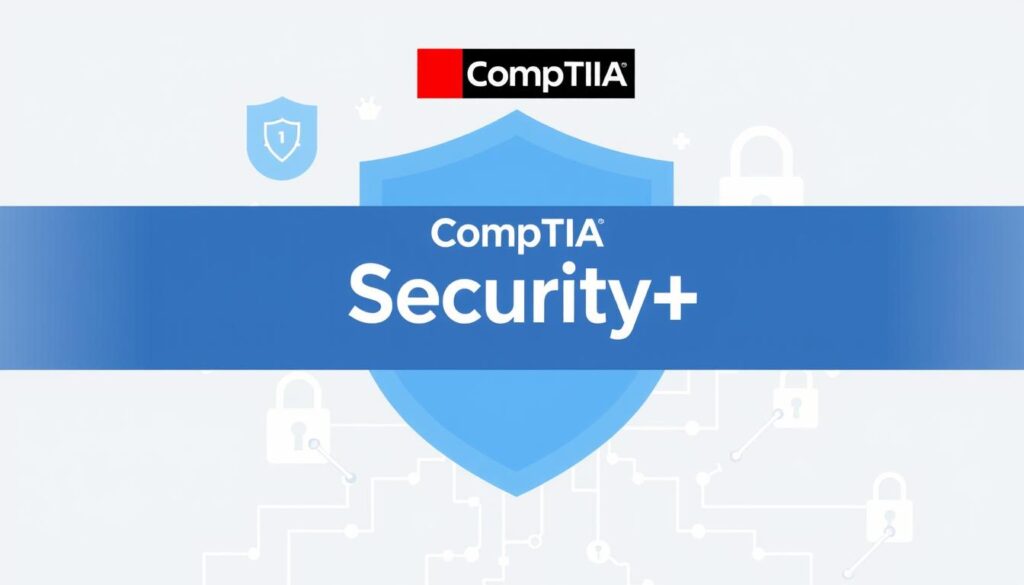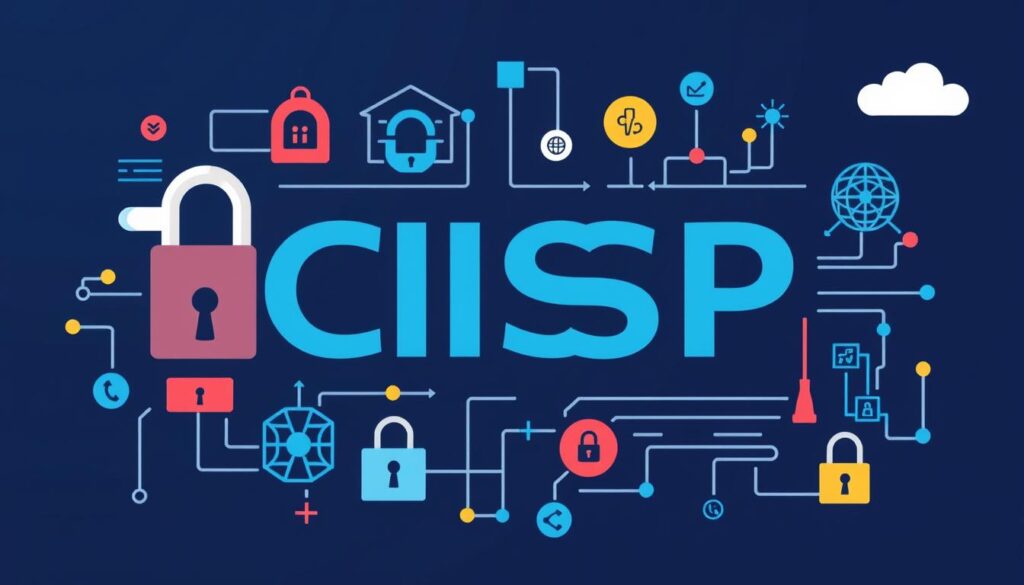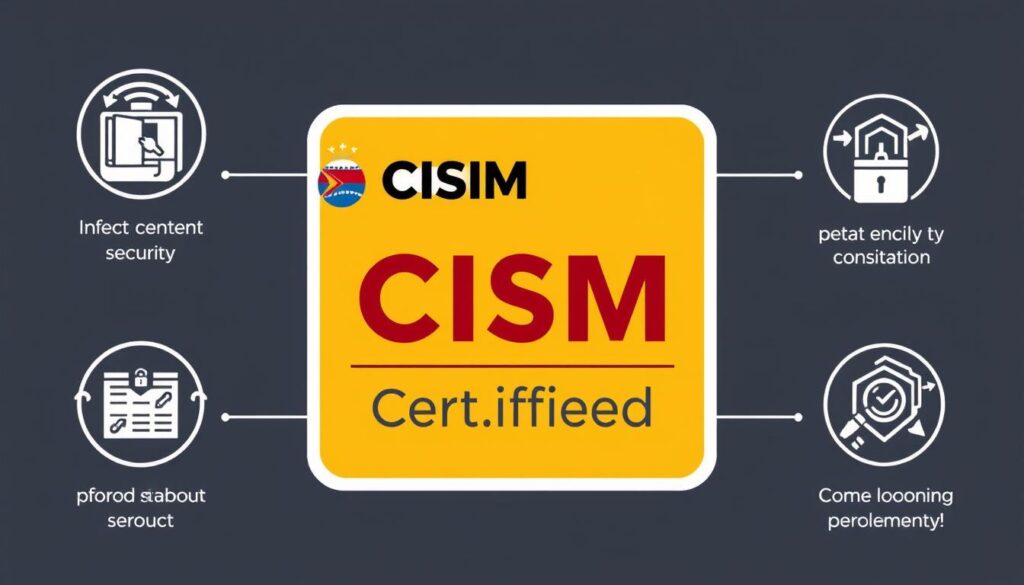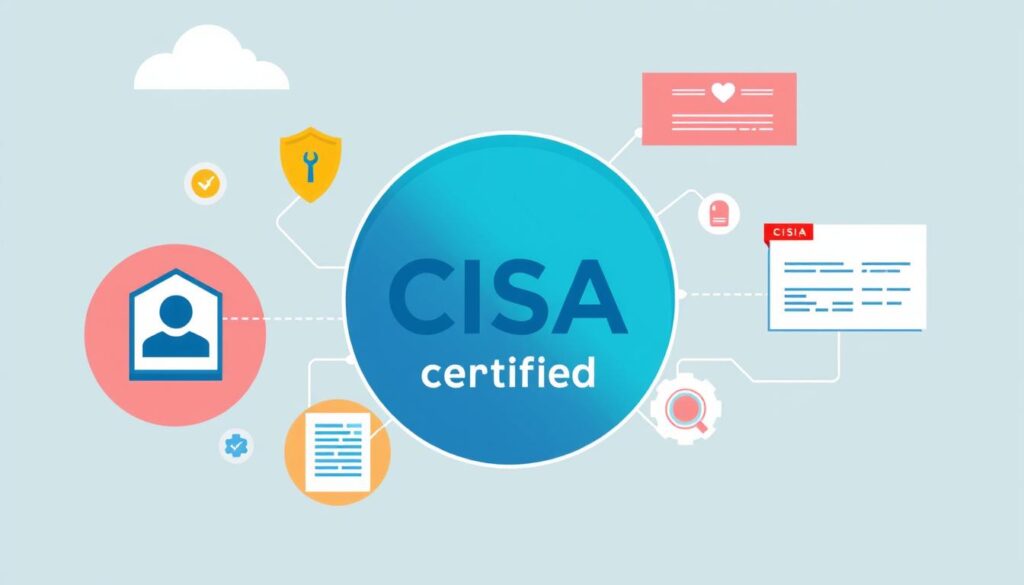In today’s rapidly evolving digital landscape, cybersecurity has become a critical concern for organizations worldwide. The demand for skilled professionals who can protect sensitive information and systems is skyrocketing.
The field of information security is projected to grow by 32% between 2022 and 2032, making it an excellent time to invest in professional cybersecurity certifications. These certifications not only validate your expertise but also open doors to lucrative career opportunities.
As employers increasingly use certifications as benchmarks during the hiring process, having the right certification can significantly enhance your skills, credibility, and earning potential in the competitive job market.
Key Takeaways
- Cybersecurity certifications are essential for validating your expertise.
- The cybersecurity field is growing rapidly, with a 32% projected growth.
- Certifications can significantly enhance your career opportunities.
- Employers use certifications as benchmarks during hiring.
- The right certification can boost your skills and earning potential.
The Cybersecurity Landscape in 2025
As we step into 2025, the cybersecurity landscape is becoming increasingly complex. The rapid evolution of technology has led to a surge in cyber threats, making it essential for professionals to stay ahead of the curve.
Growing Demand for Cybersecurity Professionals
The demand for cybersecurity professionals is on the rise, with cybersecurity jobs expected to grow by 32 percent between 2022 and 2032. This growth makes it an excellent time to transition into the field, as organizations are looking for skilled professionals to protect their networks and systems.
You can capitalize on this trend by acquiring the right skills and certifications, positioning yourself for success in this high-demand field.
Evolution of Cyber Threats
Cyber threats have evolved significantly, from simple viruses to sophisticated ransomware, state-sponsored attacks, and advanced persistent threats (APTs). The increasing use of artificial intelligence and machine learning has also created new challenges for cybersecurity professionals.
- Understand how cyber threats have become more sophisticated and complex.
- Learn about emerging threats related to AI and ML.
- Explore how cloud computing has shifted security paradigms.
To stay ahead, you need to be aware of these evolving threats and have the necessary skills to combat them.
Top 10 Cyber Security certifications for 2025
With the increasing demand for cybersecurity professionals, it’s essential to identify the top certifications that can enhance your skills and job prospects in 2025. The following certifications are highly regarded in the industry and can significantly boost your career.
1. CompTIA Security+

The CompTIA Security+ certification is a widely recognized credential that covers a broad range of security topics, making it an excellent starting point for cybersecurity professionals.
Core Skills Covered
The CompTIA Security+ certification covers core skills such as network security, compliance, and operational security.
Requirements and Cost
To obtain the CompTIA Security+ certification, you need to pass the SY0-601 exam, which costs around $349.
Career Opportunities and Salary Potential
CompTIA Security+ certified professionals can pursue careers such as security specialist, with average salaries ranging from $60,000 to over $100,000.
2. Certified Information Systems Security Professional (CISSP)

The CISSP certification is an advanced credential that demonstrates expertise in designing and implementing secure systems.
Core Skills Covered
CISSP covers skills such as security and risk management, asset security, and software development security.
Requirements and Cost
To become CISSP certified, you need at least five years of relevant experience and pass the CISSP exam, which costs around $699.
Career Opportunities and Salary Potential
CISSP certified professionals can pursue senior roles such as chief information security officer, with average salaries over $150,000.
3. Certified Ethical Hacker (CEH)

The CEH certification is designed for professionals who want to demonstrate their ability to identify vulnerabilities and weaknesses in computer systems.
Core Skills Covered
CEH covers skills such as footprinting and reconnaissance, scanning networks, and system hacking.
Requirements and Cost
To obtain the CEH certification, you need to meet the eligibility criteria and pass the CEH exam, which costs around $850.
Career Opportunities and Salary Potential
CEH certified professionals can work as penetration testers, with average salaries ranging from $80,000 to over $150,000.
4. Certified Information Security Manager (CISM)

The CISM certification is geared towards professionals who manage, design, and oversee an enterprise’s information security.
Core Skills Covered
CISM covers skills such as information security governance, risk management, and incident management.
Requirements and Cost
To become CISM certified, you need at least five years of relevant experience and pass the CISM exam, which costs around $575.
Career Opportunities and Salary Potential
CISM certified professionals can pursue careers such as information security manager, with average salaries over $140,000.
5. Certified Information Systems Auditor (CISA)

The CISA certification is designed for professionals who audit, control, and assure information systems and technology.
Core Skills Covered
CISA covers skills such as auditing information systems, IT governance, and risk management.
Requirements and Cost
To obtain the CISA certification, you need to pass the CISA exam and meet the experience requirements, with the exam costing around $575.
Career Opportunities and Salary Potential
CISA certified professionals can work in various roles, including IT audit manager ($112,241), cybersecurity auditor ($162,067), and information security analyst ($140,653), with many opportunities for career advancement.
Top 10 Cyber Security certifications for 2025 (Continued)

As we continue our exploration of the top cybersecurity certifications for 2025, we delve into the more specialized and advanced credentials that can significantly boost your career. The following certifications are highly regarded in the industry and can open up new opportunities for professionals looking to advance their careers in cybersecurity.
OffSec Certified Professional (OSCP)
The OffSec Certified Professional (OSCP) is a highly respected certification that validates your ability to identify and exploit vulnerabilities in a controlled environment.
Core Skills Covered
The OSCP certification covers core skills such as penetration testing, vulnerability assessment, and exploitation techniques.
Requirements and Cost
To become OSCP certified, you need to complete the Penetration Testing with Kali Linux (PWK) course and pass the certification exam. The cost includes the course and exam fee, which is around $999.
Career Opportunities and Salary Potential
OSCP certification holders are in high demand, with career opportunities in penetration testing and security consulting. The average salary for OSCP-certified professionals is around $120,000 per year.
Google Cybersecurity Professional Certificate
The Google Cybersecurity Professional Certificate is designed to prepare you for an entry-level role in cybersecurity.
Core Skills Covered
This certificate program covers core skills such as network security, threat analysis, and incident response.
Requirements and Cost
The program is self-paced and costs around $39 per month. There are no prerequisites for this certificate.
Career Opportunities and Salary Potential
Upon completion, you can pursue roles such as security analyst or cybersecurity specialist, with average salaries ranging from $60,000 to $80,000 per year.
GIAC Security Essentials Certification (GSEC)
The GIAC Security Essentials Certification (GSEC) is a widely recognized certification that demonstrates your knowledge of security fundamentals.
Core Skills Covered
GSEC covers core skills such as security protocols, risk management, and incident handling.
Requirements and Cost
To become GSEC certified, you need to pass the certification exam, which costs around $849.
Career Opportunities and Salary Potential
GSEC certification holders can work in various roles, including security analyst and IT auditor, with average salaries ranging from $70,000 to $100,000 per year.
Systems Security Certified Practitioner (SSCP)
The Systems Security Certified Practitioner (SSCP) is an advanced certification that validates your hands-on skills in security practices.
Core Skills Covered
SSCP covers core skills such as security operations, risk management, and incident response.
Requirements and Cost
To become SSCP certified, you need to have at least one year of experience in a security role and pass the certification exam, which costs around $249.
Career Opportunities and Salary Potential
SSCP certification holders can pursue senior roles such as security manager or IT security consultant, with average salaries ranging from $100,000 to $150,000 per year.
Cloud Security Professional (CCSP)
The Cloud Security Professional (CCSP) is a highly specialized certification that focuses on cloud security. To earn the CCSP certification, individuals must have a strong foundation of IT knowledge and at least five years of industry experience.
Core Skills Covered
CCSP covers core skills such as cloud architecture, data security, and compliance.
Requirements and Cost
The certification requires passing the CCSP exam, which costs around $599.
Career Opportunities and Salary Potential
CCSP-certified professionals can work in roles such as cloud security architect, cloud security engineer, and cloud security consultant, with senior positions often exceeding $150,000 annually.
How to Choose the Right Cybersecurity Certification
As you navigate the world of cybersecurity certifications, it’s essential to consider your career goals and experience level. With numerous options available, selecting the right one can be overwhelming. However, by assessing your career aspirations, considering your experience level, and evaluating the cost versus benefit, you can make an informed decision that aligns with your professional objectives.
Assessing Your Career Goals
To choose the right cybersecurity certification, you need to assess your career goals. Consider what you want to achieve in your career and what skills you need to acquire. For instance, if you’re interested in risk management, you may want to explore certifications like the Certified Information Security Manager (CISM) or the Certified Information Systems Security Professional (CISSP).
Considering Experience Level
Your experience level is another crucial factor to consider when choosing a cybersecurity certification. Some certifications, like the CompTIA Security+, are ideal for beginners, while others, like the Certified Information Systems Auditor (CISA), require more experience. Be sure to choose a certification that aligns with your level of expertise.
Evaluating Cost vs. Benefit
When evaluating the cost vs. benefit of a cybersecurity certification, consider not only the immediate costs but also the long-term salary potential. Here are some key points to consider:
- Calculate the return on investment for various cybersecurity certifications.
- Research which certifications offer the best salary premiums in your target market.
- Explore employer reimbursement programs, as 40% of organizations cover certification costs according to (ISC)² research.
By carefully evaluating these factors, you can make an informed decision and choose a cybersecurity certification that enhances your skills and advances your career.
Alternative Pathways into Cybersecurity

Breaking into cybersecurity doesn’t always require a direct entry; several alternative routes can lead to a rewarding career in this field. Many professionals start their journey in more general IT roles, gaining hands-on experience that is invaluable for future cybersecurity certifications.
Degree Programs in Computer Science
Pursuing a degree in Computer Science or a related field can provide a solid foundation for a career in cybersecurity. Such programs often cover essential topics like network security, cryptography, and threat analysis, preparing you for various roles in the cybersecurity landscape. You can further enhance your career prospects by exploring entry-level cybersecurity certifications that complement your degree.
Entry-Level IT Positions
Starting in entry-level IT positions such as help desk administration or IT support specialist can be a practical pathway into cybersecurity. These roles provide hands-on experience and exposure to various aspects of IT, including security measures. By identifying and emphasizing the security aspects of your job, you can build relevant experience and gradually transition into specialized security roles within your organization.
Conclusion
As the digital landscape continues to evolve, the importance of cybersecurity certifications cannot be overstated. In today’s rapidly changing cybersecurity environment, having the right certification is crucial for professionals looking to enhance their skills and credibility.
The top 10 cybersecurity certifications for 2025 offer a diverse range of pathways, from technical specializations to management roles, each supported by specific certifications. When selecting a certification, it’s essential to assess your current experience level and career goals.
While cybersecurity certifications are vital, they are just one component of a successful career. Practical experience, continuous learning, and professional networking are equally important. Staying current with evolving security threats and technologies through ongoing certification and education is crucial for long-term success.
For those considering a cybersecurity career path, the field offers significant growth potential and the satisfaction of protecting critical digital assets. By choosing the right cybersecurity certification, you can set yourself on a rewarding and challenging career path.
